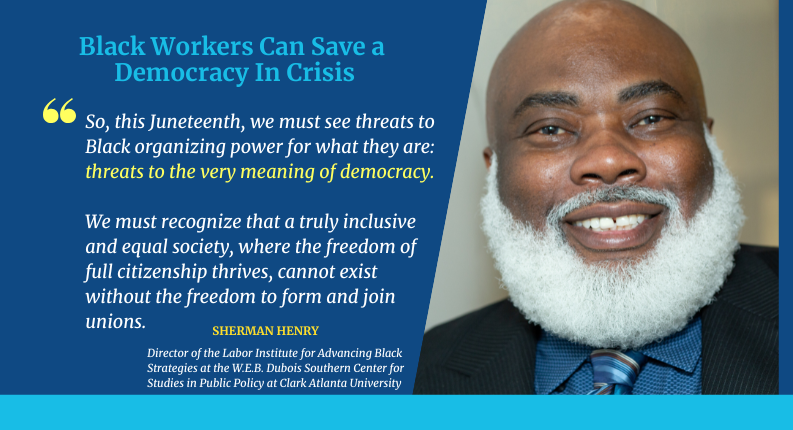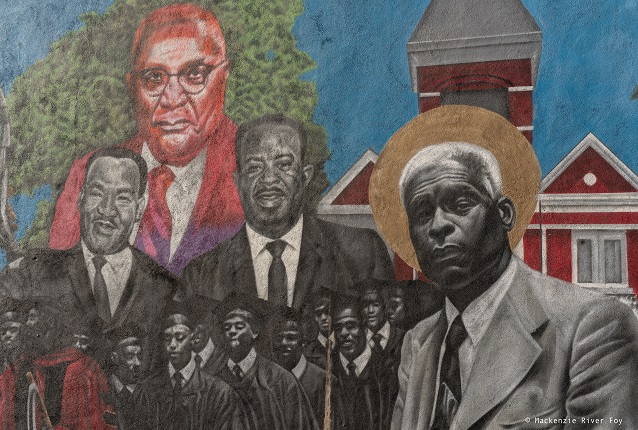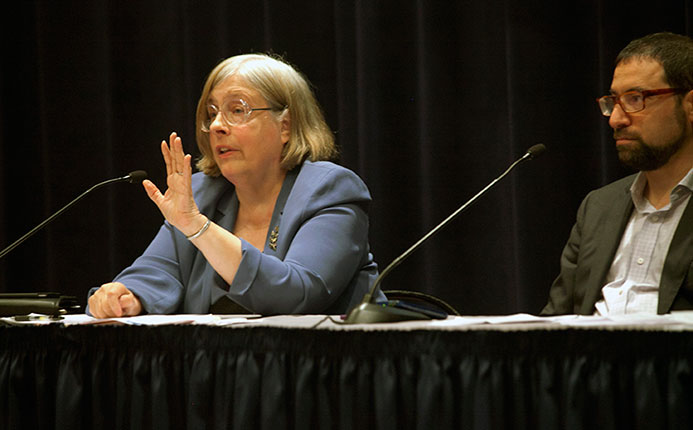Reflection on Juneteenth and Black Worker Power in this moment, by Sherman Henry
Today, we are witnessing some of the most significant rollbacks of our Constitutional freedoms in modern history. Workers are feeling the impacts of unprecedented attacks on the National Labor Relations Board, the erosion of collective bargaining for federal workers, and ICE raids on workplaces nationwide. It seems like the very fabric of our political and economic democracy is hanging by a thread.
It’s ironic that these attacks are occurring as we celebrate Juneteenth, commemorating the day in 1865 when the federal government finally informed the remaining enslaved people of their freedom. As we celebrate this year, we must also keep our eyes wide open to the mounting threats to our democracy—and with it, the mounting threats to our fundamental freedom to organize. Few groups are more impacted by this than Black Americans, because, amid these attacks, an increasing number of workers (especially Black workers) are being denied the right to organize. But workers are not staying silent; they are using their power to protect their hard-won collective bargaining rights. And the answer to winning this fight is to center Black workers and leaders in the conversation. Because without labor justice, there is no racial justice.
Black workers have long used organizing to influence systemic changes. In 1850, Frederick Douglass created the American League of Colored Laborers for Black Chalk laborers, which laid the groundwork for later efforts to organize Black workers and codify their rights to wage parity and equality. The spirit of Black liberation continued to usher in the promise of progress and equal rights in the United States Constitution with the adoption of the 13th, 14th, and 15th Amendments. The power of these Amendments lies in their aim to achieve racial justice through full citizenship and economic participation.
To fulfill the promise of these amendments, Black workers used their organizing prowess to exercise workplace democracy, promote financial stability, and obtain political power by enabling working-class communities to exercise voting rights, mobilize, and make demands for equality. Their success can be seen in Black workers’ slight overrepresentation among union members. Black workers are more likely than other racial groups to be in unions, making up 11.8% of total union membership, while comprising 13% of the total American workforce. Yet, as Black workers’ voices grow louder, the troubling undercurrent of racism and racial polarization has reemerged in partisan politics and through economically regressive public policies. Nowhere is this more prevalent than in the South.
Southern state legislatures, acting as heirs to the Confederacy, continue to pass preemption laws that impede efforts to protect workers’ rights, raise wages, and improve workplace health and safety standards. We’ve seen these new Jim Crow laws in Alabama, Georgia, Mississippi, South Carolina, Tennessee, and Texas. Their ultimate goal is clear: limit the power of Black workers in an effort to halt their economic mobility and freedom. Why? Politicians fear the economic, political, and social power that Black workers can generate when we join together.
As a labor leader in the Deep South, I’ve seen firsthand what can happen when we invest in Black labor strategists (who have long been on the ground doing the work but are often left out of leadership spaces) to expand organizing and collective bargaining power for all workers. Anti-unionists in the South are scared of this power—and are fearful precisely because they understand the progress that can be made through Black unionization.
But the Black labor leaders of yesterday—along with the Black leaders of today and tomorrow—have never and will never stop fighting the tide of racist attempts to keep Black workers down. We knew then and know now that white supremacy and corporate greed cannot hinder Black power. And by organizing, Black people are going to tackle and dismantle the “New Jim Crow.”
So, this Juneteenth, we must see threats to Black organizing power for what they are: threats to the very meaning of democracy. We must recognize that a truly inclusive and equal society, where the freedom of full citizenship thrives, cannot exist without the freedom to form and join unions.
That means we must continue the fight to fully realize the 13th, 14th, and 15th Amendments—and support Black workers’ liberation struggle to battle the stubborn spirit of White Supremacy and achieve a true multiracial democracy. We can do so on the shop floor. By empowering Black workers and labor leaders, we can build a future where democracy lies in the hands of working people—not billionaires and white supremacists.
Sherman Henry is the Director of the Labor Institute for Advancing Black Strategies at the W.E.B. Dubois Southern Center for Studies in Public Policy at Clark Atlanta University.
This reflection was originally published in the St. Louis/Southern Illinois Labor Tribune



